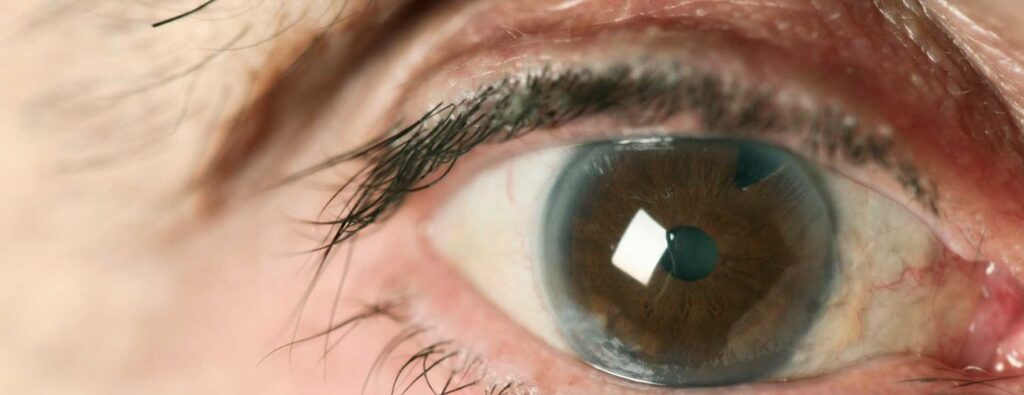Cataracts are a common eye condition that can occur in both adults and children. While most cataracts develop as people age, sometimes they can form prematurely, especially in young children. If you suspect that your child has an immature cataract, it is important to seek treatment right away. This blog post will discuss the symptoms and treatment of immature cataracts.
What Is Immature Cataract?
 An immature cataract is a condition where the lens of the eye becomes cloudy or opaque. This can happen due to a number of reasons, including injury, disease, or aging. It is described as “immature” because it has not yet fully developed.
An immature cataract is a condition where the lens of the eye becomes cloudy or opaque. This can happen due to a number of reasons, including injury, disease, or aging. It is described as “immature” because it has not yet fully developed.
Moreover, an immature cataract is different from a mature cataract. Mature cataracts tend to develop gradually over time and usually cause vision problems that can be corrected with surgery. On the other hand, immature cataracts are often present at birth or occur suddenly due to an injury or disease. They can also progress quickly and may require surgery to remove them.
Types
There are also a few different types of immature cataracts, which include:
- Congenital cataracts: These are present at birth and may be caused by genetic factors or infections during pregnancy.
- Traumatic cataracts: These occur after an injury to the eye, such as a blow to the head or being hit in the eye with a foreign object.
- Infectious cataracts: These are caused by viruses, bacteria, or other organisms that invade the eye.
- Metabolic cataracts: These are caused by problems with metabolism, such as diabetes or high blood pressure.
These are just a few of the different types of immature cataracts. It’s important to note that any type of cataract can cause vision problems and may require surgery to remove. Also, you should be sure to see an eye doctor if you think you or your child has an immature cataract.
What Are The Signs Of Immature Cataracts?
It is important to be able to identify the signs of an immature cataract, as this will allow you to seek treatment as soon as possible. The most common symptom is a decrease in vision. This can be a gradual or sudden change, and may only affect one eye at first. Other symptoms include:
- Blurry vision
- Colors appearing faded
- Glare or halos around lights
- Double vision
If you notice any of these changes in your vision, it is important to see an eye doctor right away. They will be able to confirm whether or not you have an immature cataract and recommend the best course of treatment. Also, it is important to keep in mind that these symptoms can also be caused by other eye conditions, so it is best to get a professional opinion.
However, studies have found that a significant number of people with early cataracts do not experience any symptoms at all. This is why it is important to have regular eye exams, as they can often detect cataracts before you experience any changes in your vision.
What Are The Causes And Risk Factors?
 There are several different types of cataracts, and each has a unique set of causes and risk factors. Immature cataracts are no exception.
There are several different types of cataracts, and each has a unique set of causes and risk factors. Immature cataracts are no exception.
The most common cause of immature cataracts is trauma to the eye. This can include everything from a minor injury to eye surgery. Other causes include certain medications, diseases, and inherited conditions. We must also consider the possibility of congenital cataracts, which are present at birth.
The risk factors for immature cataracts are similar to those of other types of cataracts. Age is the most significant factor, as the risk increases with age. Other risks include exposure to UV light, diabetes, hypertension, and smoking.
For example, people who have had cataract surgery are at a higher risk of developing an immature cataract. This is because the surgery can cause trauma to the eye and/or lead to the formation of scar tissue. So you should be sure to ask your doctor about this if you’re considering cataract surgery.
Does Immature Cataract Need Surgery?
As immature cataract is a painless condition, many people do not realize they have it until an eye exam reveals the problem. In most cases, surgery is not needed to treat immature cataracts. The condition usually corrects itself within a few months or years as the natural lens of the eye matures.
Moreover, it is important to note that not all cataracts need surgery. If your vision is only mildly affected and you do not have other health problems, you may be able to live with the cataract without it affecting your quality of life.
So, in simple words, an immature cataract doesn’t need surgery in most cases and it matures on its own within a few months to years. However, if you experience any kind of pain or discomfort, please consult your doctor immediately. Surgery may be needed if the cataract is causing vision problems that cannot be corrected with glasses, contact lenses, or other non-surgical treatments.
There are different types of surgery for cataracts, and the type that is right for you will depend on your individual situation. Your doctor can help you decide if surgery is the best option for you.
How Can You Manage It?
There are a few things you can do if you have an immature cataract. Some of these include:
Wear sunglasses
Sunglasses are important for protecting your eyes from the sun. They can also help reduce the glare from lights. In fact, you can also find specialized glasses for cataracts. For example, blue light-blocking glasses may help reduce your symptoms. Wearing sunglasses and a hat when you go outside can also help as this works to shade your eyes.
Use artificial tears
If you have dry eyes, using artificial tears can help lubricate your eyes. This can help reduce the irritation caused by an immature cataract. You should use them as often as needed, but at least four times a day. For example, you can use them when you wake up, before bed, and after working on the computer.
Blink often
When you blink, it helps to spread tears over your eyes. This can help keep your eyes lubricated and reduce irritation. It’s important to blink often, especially if you’re staring at a screen for long periods of time. Blinking can also help reduce the risk of getting an eye infection. For example, you can blink every 20 minutes when working on the computer.
Rest your eyes
Giving your eyes a break can help reduce symptoms. This means taking regular breaks from activities like reading, working on the computer, or watching TV. When you do these activities, try to take a break every 20 minutes. And every two hours, take a 15-minute break where you focus on something else besides a screen. This will more likely help if you have dry eyes.
Use a humidifier
If you live in a dry climate or if your home is heated, using a humidifier can help. This adds moisture to the air and can help keep your eyes from getting too dry. Just be sure to clean the humidifier often to prevent mold growth. An immature cataract is a condition where the lens of the eye becomes opaque. Using a humidifier can help as this adds moisture to the air which can help keep your eyes from getting too dry.
Talk to your doctor
 If you have an immature cataract, it’s important to see your doctor for regular checkups. They can determine if the cataract is getting worse and if you need treatment. If you have any other health conditions, such as diabetes, your doctor will also want to monitor these closely. Treatment for an immature cataract usually involves surgery to remove the lens. In some cases, a doctor may also prescribe eye drops or glasses.
If you have an immature cataract, it’s important to see your doctor for regular checkups. They can determine if the cataract is getting worse and if you need treatment. If you have any other health conditions, such as diabetes, your doctor will also want to monitor these closely. Treatment for an immature cataract usually involves surgery to remove the lens. In some cases, a doctor may also prescribe eye drops or glasses.
These tips can help you manage an immature cataract and protect your vision. Be sure to talk to your doctor if you have any concerns about your condition. A professional can help you create a plan to protect your vision and keep your symptoms under control.
Conclusion
Conclusively, an immature cataract is pre-cataractous and vision threatening. It is a stage where the cataract is not fully developed and the person’s vision has not yet been significantly affected. Early detection and treatment are crucial to prevent further progression of the condition. There are many ways to treat an immature cataract, but surgery is the most effective method.
However, it is important to note that not all cataracts need to be treated. If the person’s vision is not significantly affected and they do not have any other health problems, then observation may be the best option. Treatment should only be considered if the cataract is causing symptoms or if it is expected to progress rapidly. You can also contact EyeMantra for more information and resources.
At EyeMantra we have a team of experienced eye surgeons, who will be happy to answer your questions on cataract surgery, cataract surgery cost, and cataract lens cost for different cataract surgery types- Phacoemulsification, MICS & Femto Laser Cataract. Call us at +91-9711116605 or email at [email protected] for inquiries.


